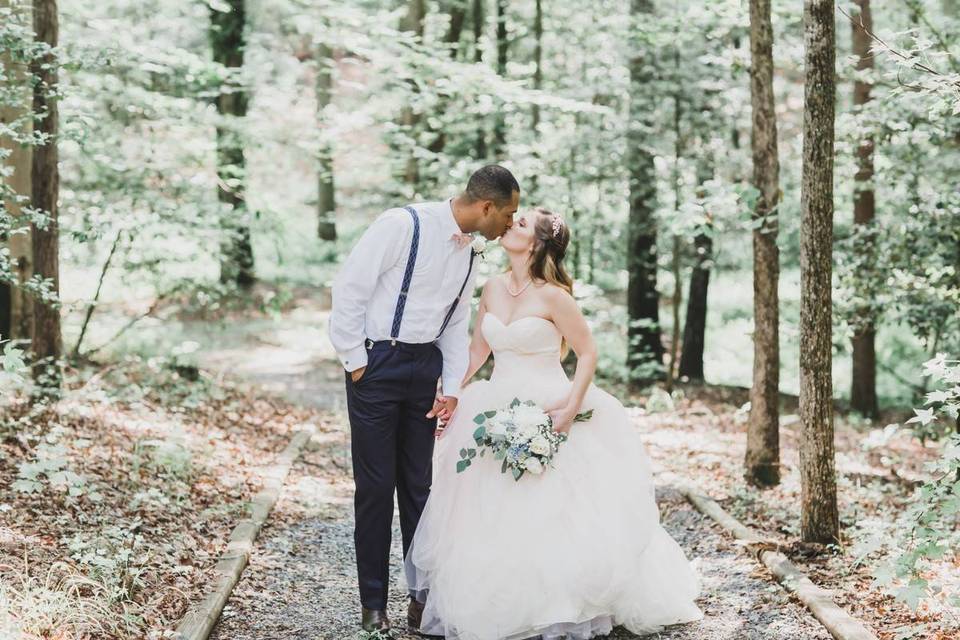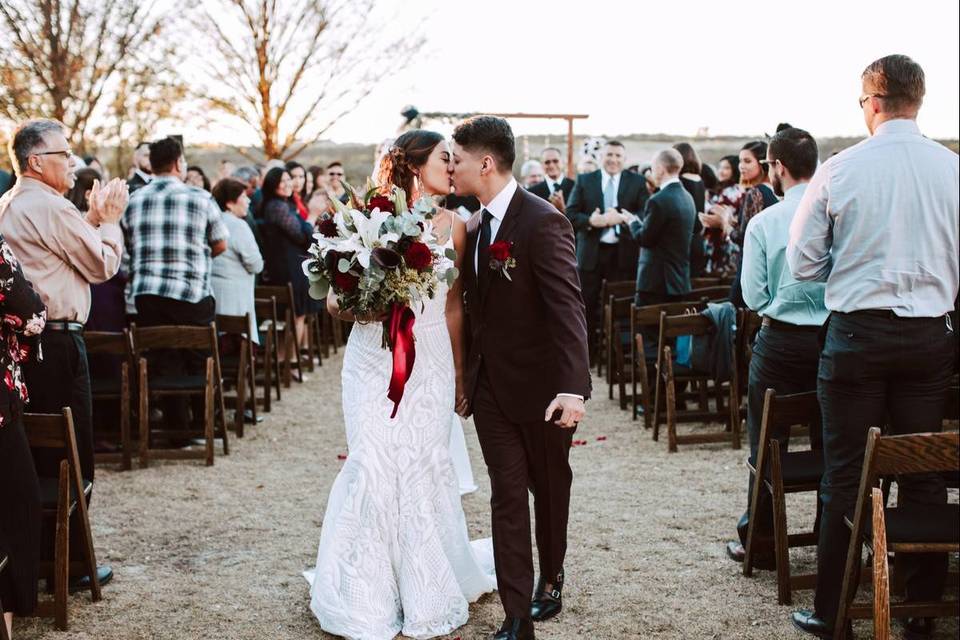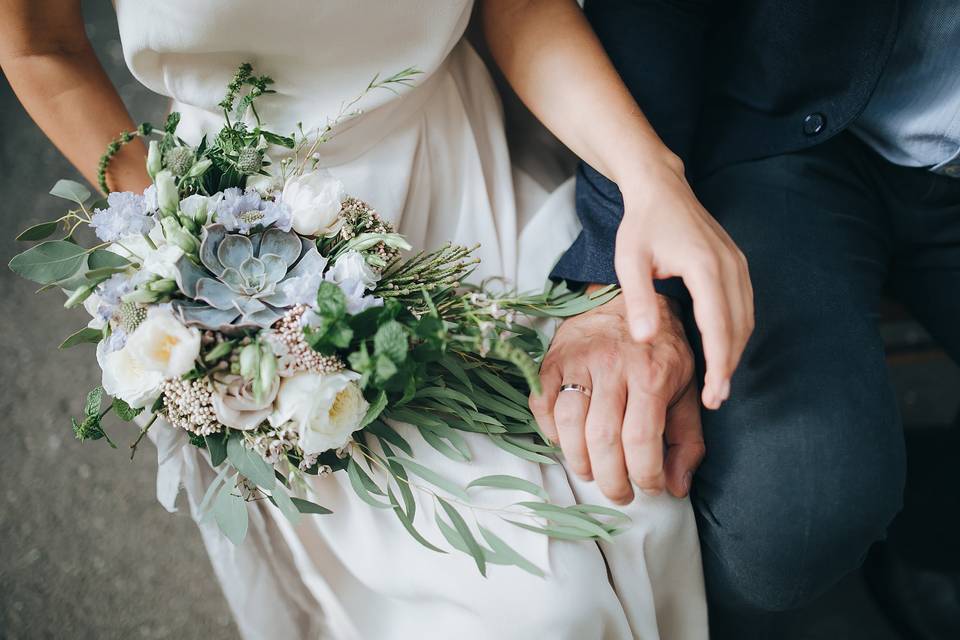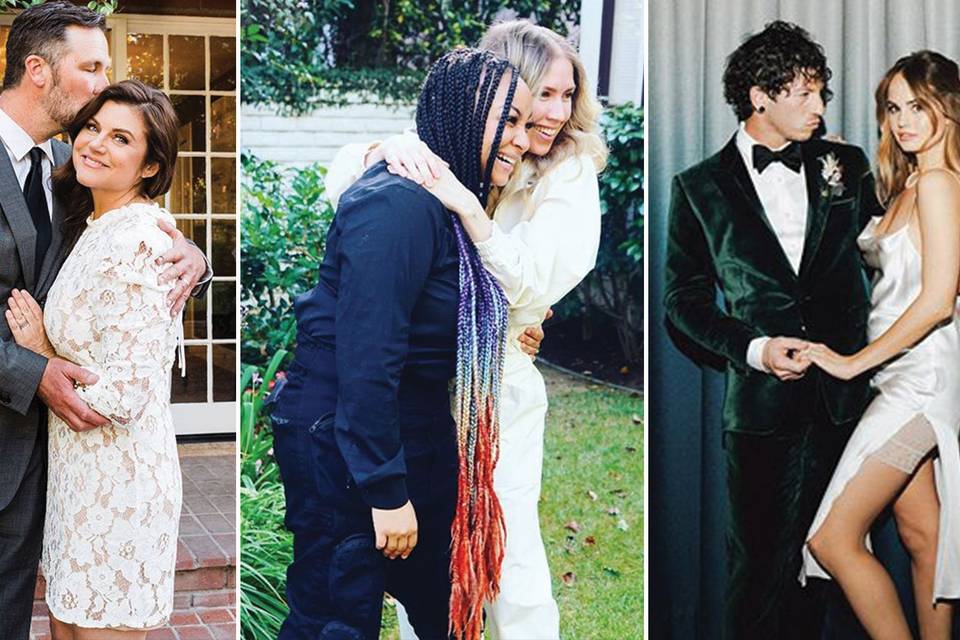The Biggest Differences Between Getting Married in Your 20s, 30s, and 40s
Age is nothing but a number—or is it? Here, an expert shares the pros and cons of getting married at different stages of life.
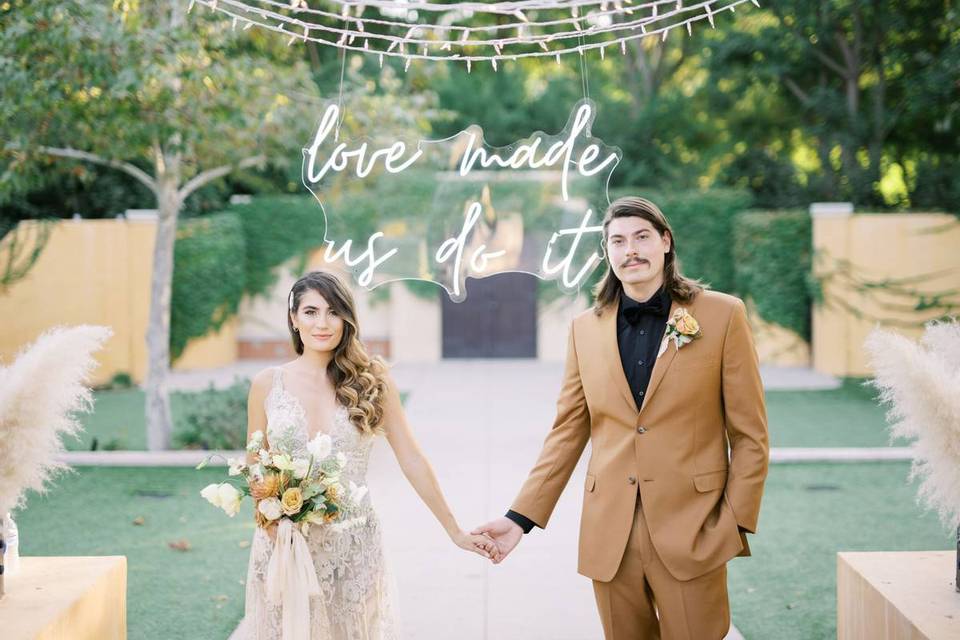
Age is just a number, right? Sometimes—and other times, not so much. While there’s no magical age when you should get married, there are some differences between saying “I do” in your 20s, your 30s or your 40s. According to the WeddingWire Newlywed Report, the average couple gets married at age 32 (just 12 years ago, it was 27!). But plenty of people become a spouse much earlier or much later—and that’s okay. There are benefits and pitfalls to each of these decades. Regardless of the potential hurdles, however, what’s most important is feeling emotionally ready to pair your life with another person. No matter if that happens at 23 or 44, trust your gut and your relationship.
To dig deeper into the age factor, we spoke with psychologist Dr. Yvonne Thomas, Ph.D. Here, she shares her expertise:
How Age Impacts Marriage
Generally speaking, Dr. Thomas says age plays a factor in marriage because it can have an impact on how healthy that relationship can ultimately be, and create certain pros and cons for the partners and their union.
As an example, when you’re younger, freer of responsibilities, and less jaded from past experiences, you may have a more open heart and positive—albeit potentially naive—attitude. As you get older, however, you gain knowledge and wisdom from the trials of life. Still, you may also feel more pressure to move faster in a relationship, particularly if you’re anxious about fertility. And as you gain more laps around the sun, you could also become more "set in your ways" and struggle to compromise. Suppose people get married when they are youngers. In that case, they may be more positive and open-hearted with each other, but they may not have enough life or relationship experience to be successful in that partnership.
Getting Married in Your 20s
Maybe you met in high school, and the rest is history. Or, you found your way to one another in college, and though you could wait to make it official, you don’t want to. If you choose to get married in your 20s, Dr. Thomas says a benefit is you likely aren’t cynical about love because you haven’t had as many heartbreaks as folks who find their partner later in life. You probably will also have more trust and faith in marriage, since well, you have no reason to believe otherwise.
On the other hand, Dr. Thomas says 20-somethings may lack the emotional maturity needed to make their marriage a more ‘adult’ union. “One or both of the partners may have difficulty committing to one person forever or being able to work on or solve problems which exist between them,” she continues. “People who marry in their 20s may not realize that things are not fixed as easily and perfectly as they look in the movies or on television.”
And since you may lack some relationship experience, it could be a learning curve to master effective communication. This isn’t detrimental; it just means you should practice patience when you go through the many hurdles marriage presents. Dr. Thomas says it can also be beneficial to give one another room to grow and explore hobbies, interests, and other pursuits in your 20s since you’re still getting to know yourself as an individual, too.
Getting Married in Your 30s
For many people, the 30s are a super-special decade. You’re past some of the insecurities you had in your 20s, you’ve narrowed down your friends to the best ones, your career is likely in a much stronger place, and well, you’re happier and more self-sufficient. Dr. Thomas says those who decide to wed in their 30s benefit from emotional maturity. “The partners may have lived more life, had more experiences, and emotionally grown through what they have gone through and been exposed to,” she continues. “People getting married in their 30s tend to know themselves more and have a better idea of what they are and aren’t looking for in a love relationship and marriage.”
Plus, ghosting, gaslighting and other cruel dating games are starting to become a thing of the past at this point since Dr. Thomas says people tend to physiologically mature more in their 30s which can often make them be more serious about work, responsibilities, and commitments.
On the other side of the coin, however, the 30s are a pressure-packed 10-year stretch. Especially if you and your partner want to grow your family, fertility becomes a big part of the discussion from the get-go. “There can also be the pressure of the biological clock regarding children,” Dr. Thomas says. “The couple needs to make major decisions about if they want to have any children and, if so, when they want to start that process.” Another downfall of getting married in your 30s is navigating all of the busy parts of your life. You probably want to say “I do”, manage your career, travel, invest your money, buy a house, have a baby… and attempt to have some alone time. It’s a lot to juggle, so you need a partner who is flexible, understanding—and along for the ride.
Getting Married in Your 40s
Whether it is your first marriage or your second, the 40s can be a unique and joyful time to wed. As Dr. Thomas explains, by now, you’re more established in every area of your life. You likely have financial security with property, savings, 401K, and investments. You could also have a solidified and successful career, providing more seniority. Plus, you likely have a solid foundation of friends and a healthy support system that makes you more confident (and less needy) going into a relationship. In short: you know what you want, and you won’t settle for less. Understanding and prioritizing your worth is a wonderful recipe for a loving partnership and marriage.
However, compared to the 20s and 30s, a downfall of getting married in your 40s is that you (and your partner) could be more rigid and inflexible. “Due to being older, each person over the years can become entrenched in his or her beliefs and ways of doing things,” she explains. “As a result, one or both of the partners can find it challenging to work as a team and compromise with each other. Whether there’s discomfort with our fear of change, tunnel-vision, or stubbornness, the inability to work together to find a middle ground can cause tension, unhappiness, and/or divisiveness for the couple.”

